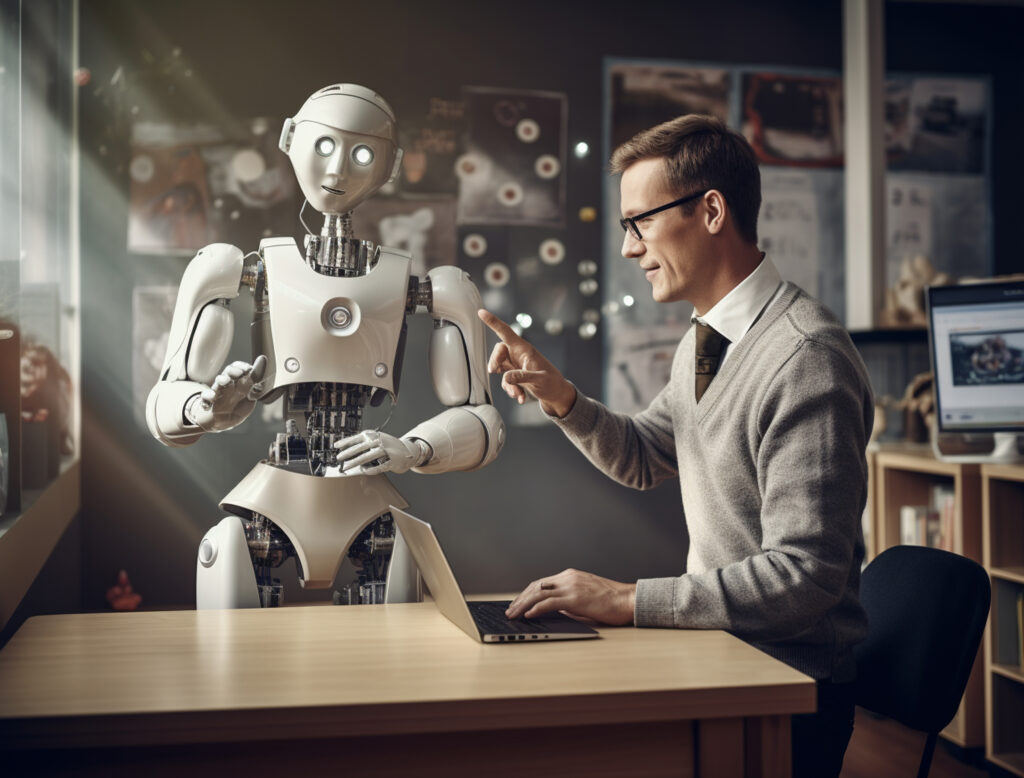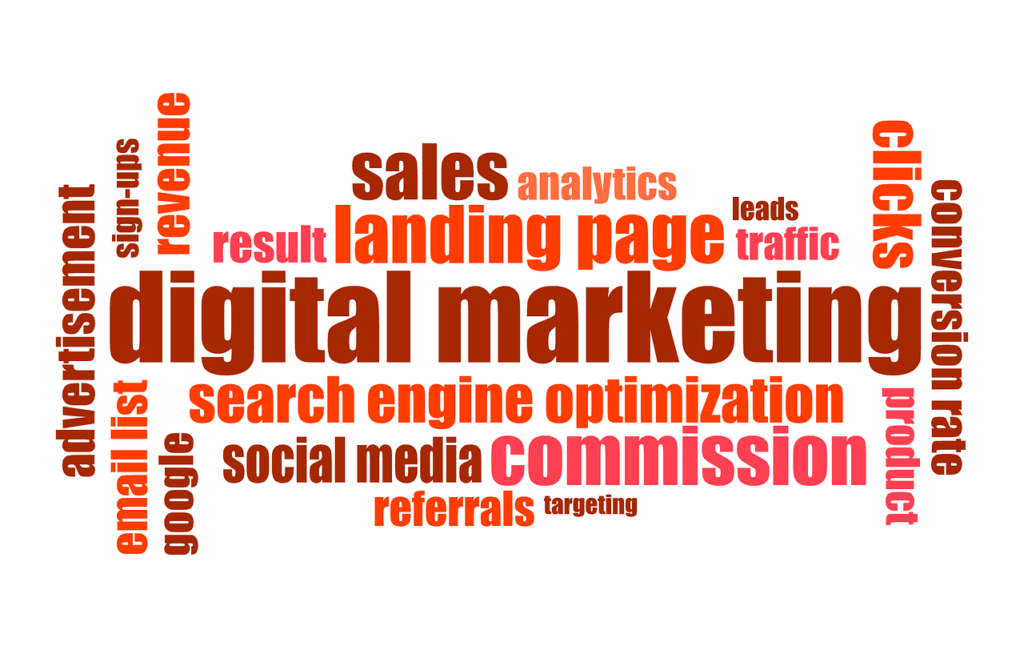Artificial intelligence is revolutionizing many industries, and digital marketing is no exception. Integration of AI technologies in the strategy behind digital marketing has changed the way businesses engage with their customers, optimize campaigns, and analyze data. Artificial intelligence is turning out to be the very key for the modern marketer, ranging from improving the customer experience to driving efficiency into marketing operations.
This post is a comprehensive guide for AI in digital marketing, exploring its benefits, applications, and future potential in businesses.
1. What is AI in Digital Marketing?
Artificial intelligence is the simulation of human intelligence in machines that are programmed to think and learn. Artificial intelligence in digital marketing encompasses a wide range of technologies, including machine learning, natural language processing, and predictive analytics, used to automate and improve much of marketing.
A. Machine Learning and Data Analysis
It is one adaptation of artificial intelligence where machines learn and improve by experience rather than being programmed in advance. Algorithms in digital marketing function on the basis of machine learning, which involves sifting through gigantic proportions of data to identify patterns within them and make projections about consumer behavior and optimize marketing strategies. Consequently, based on these facts, marketers can make more informed decisions to tailor campaigns to better meet the needs of specific customers.
B. NLP
Another important AI technology is Natural Language Processing (NLP), through which machines may make sense of, understand, and communicate in human language. NLP encompasses what powers chatbots, voice search, and content analysis tools as well as eases more natural and effective interactions between businesses and their customers.
2. Personalization at Scale
The major strengths of AI in the context of digital marketing are that it is able to create more personalized experiences at scale. The use of personalization improves customer engagement and increases the effectiveness of marketing activities.
A. Dynamic Content Recommendations
AI algorithms analyze the behavior, preferences, and interactions of users to deliver personalized content recommendations. As an illustration, streaming services, like Netflix, as well as e-commerce websites apply AI technology to recommend products or contents based on users’ past interactions. This degree of personalization enhances user satisfaction along with driving more conversion rates.
B. Personalized email marketing
AI-based email marketing enables businesses to send very personalized messages to each user based on what they prefer, have bought, and are engaging with. Even automated emails in the form of sequence emails can be personalized with the interests of each recipient to enhance open rates as well as click-through rates.
3. Enhanced Customer Support through AI Chatbots
The use of AI-powered chatbots is changing the face of customer service because they offer instantaneous round-the-clock services. It uses the form of natural language processing for understanding and responding to the queries of customers accurately and in real time.
A. Automated Customer Service
AI chatbots manage routine customer inquiries and deliver immediate answers; hence, more complex questions can be answered by a human. Instant solutions to common questions help customers and reduce wait times, thereby making the overall customer experience better.
B. Conversational Marketing
Chatbots allow for conversational marketing, where it is possible to have a chatbot converse in real time with a user and walk them through the sales funnel. A great example would be an e-commerce site using a chatbot to assist a user in locating a product, answering questions, and making a purchase. This will contribute to conversion and customer satisfaction.
4. Predictive Analytics and Forecasting
Predictive analytics makes use of AI for the analysis of historical data and its prediction with trends and behaviors in the future. This feature is gold for a marketer. No marketer in their right mind would want to miss an opportunity to predict their customer needs and optimize their strategy.
A. Predictive behavior
By analyzing past interactions and behaviors, these AI algorithms try to foresee the future actions of the customers. For instance, predictive analytics might find out which of the customers are most likely to churn so that business entities will come up with strategies of retention before it is too late. Some specific patterns in customer behavior, if noticed, can be useful to marketers in tailoring their campaigns to reach a solution to probable problems. Thus, customer loyalty can increase.
B. Sales Forecasting
AI-driven sales forecasting tools analyze market trends, history of selling, and external factors in order to predict future sales performance. Accurate sales forecasts allow businesses to work on inventory, resource allocation, and targeted marketing, further leading to revenue growth.
5. Optimizing Ad Campaigns with AI
Through AI, ad campaigns are optimized digitally ensuring that the right audience is reached and thus leads to maximum returns in investment.
A. Programmatic Advertising
The automated purchase of advertising and where they put them on the pages is done in real time through AI. The algorithms for user data and behavior, based on AI, ensure that the time ads are shown is targeted to the users who are most likely to engage with them. This approach increases the efficiency of ad targeting while reducing wasted ad spend.
B. Optimization of Ad Performance
Such AI tools continuously monitor metrics associated with ad performance and make adjustments in campaigns in real-time. Visibility of such performance indicators as click-through rates, conversion rates, and cost-per-acquisition allow AI algorithms to ensure optimal ad creatives, bidding strategies, and audience targeting for maximum return on investment.
6. Content Generation and Curation
AI also advances content generation and curation which allows marketers to create much higher quality content with the help of these tools in much more efficient ways.
A. Automated Content Generation
Tools powered by AI can generate content such as product descriptions, social media updates, or blog posts by following predefined rules. In this regard, AI can produce a number of variations of ad copy or news summaries for marketers to scale their content efforts without sacrificing the quality.
B. Content Curation
AI algorithms determine user preferences and content engagement for curating the right relevant content to engage with desired audiences. Content curation tools facilitate marketers in serving personalized content experiences by suggesting articles, videos, among other media, based on the interests and behavior of the users.
7. AI in Social Media Marketing
AI has revolutionized social media marketing with a variety of technologies that boost engagement, utilize ease of managing content, and insights into analytics.
A. Social Listening and Sentiment Analysis
These are AI-driven social listening tools that track brand mentions as well as trends through social media sites, hence acquiring knowledge of the sentiment of the public toward the brand. The capability to listen to conversations in social media can give a business insights on opinions of a customer, which can aid in the identification of emerging trends, thus responding promptly through more sensitive feedback.
C. Automated Social Media Management
AI tools do away with the hassle of managing social media by posting, analyzing performance, and engaging with users. Automated posting tools ensure constant content delivery because AI-powered analytics help furnish insights on engagement and campaign effectiveness.
8. AI-Based Customer Insights
AI technologies provide valuable insights into customer behavior and preferences, thus helping marketers make more effective strategies.
A. Customer Segmentation
AI algorithms collect data on the customers, which is then used to segment them along behavior, preference, and demographic criteria. The marketer can hence develop campaigns that reach very target groups of customers and also offer personalized offers to the various groups, raising engagement and conversion rates.
B. Journey Mapping and Optimization
Thus, using AI tools, the customer journey can be mapped through individual interactions along multiple touchpoints. The firm is able to understand the buying process behavior of customers and thus have opportunities in enhancing marketing strategy when it comes to higher results.
9. Future of AI in Digital Marketing
AI is in the future of digital marketing, where technology trends change continuously and then are more and more absorbed into marketing processes. For example, visual search through AI is a new means of searching through images rather than any form of text. It has been empowered by Google Lens and Pinterest’s visual searching tools, and this is making it easier for the consumers to find what they see in an image, thereby establishing better experience and raising the conversion rates for e-commerce.
One very exciting development is AI voice search optimization: There is no shortage of newly trending voice-activated devices, such as Amazon Alexa, Siri, and Google Assistant. Optimizing content for such can simply be the gateway to success for businesses amidst the competitive playing ground. How voice search marketing strategies will take shape relies on AI’s capacity to get patterns of natural language and understand its context.
Also, hyper-personalization through AI is going to make it possible for businesses to communicate the right marketing messages at the right moment in real-time and based on context to each individual customer. The next level of personalization will further enhance user experiences and increase customer retention.
Artificial intelligence is transforming the landscape of digital marketing: unprecedented personalization, efficiency, and more data-driven decision-making are brought about by it. It ranges from enhancing customer experiences through the use of chatbots and the optimization of ad campaigns to even content generation, and AI has now turned out to be an unavoidable element for marketers.
With continued development on AI technology, it is the business firms that use its capability that would be ahead in competition and are able to achieve their marketing goals. However, it is very much important to navigate the ethical concerns and challenges that come with its use, as this is important for responsible and effective application of AI.
Finally, new levels of growth, engagement, and innovation may now be achieved through AI in the digital marketing endeavors of business firms. More than ever, the future of digital marketing is now, and it is the AI system leading the way, driving transformation and success in the digital landscape.



